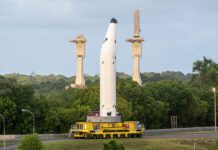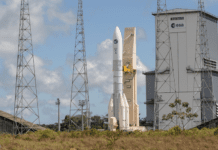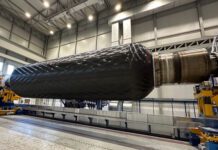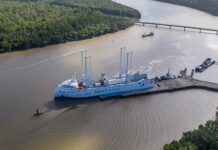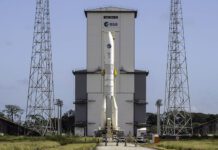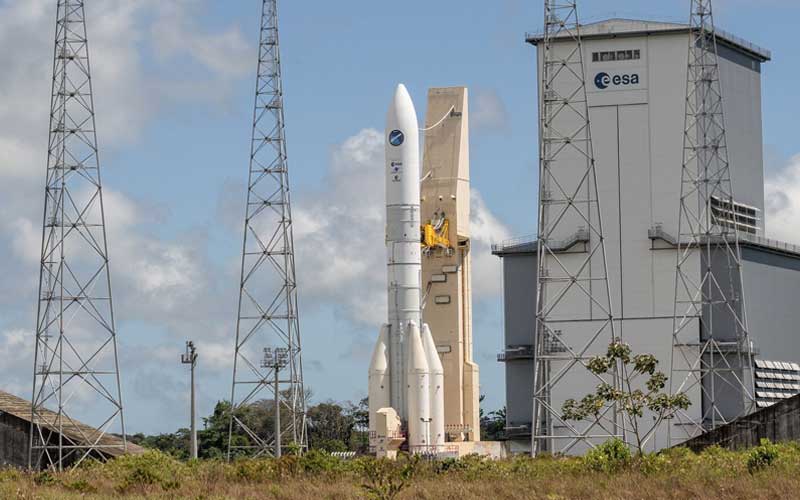
An anomaly affecting the Ariane 6 thrust vector control system has delayed a 3 October long-duration hot fire test of the vehicle’s core stage.
In preparation for a maiden Ariane 6 flight in 2024, major components of the rocket are undergoing a series of tests to validate their fitness for flight. On 5 September, the first hot fire test of the rocket’s core was completed, with the Vulcain 2.1 engine being fired for four seconds.
The successful completion of the initial hot fire test was supposed to have greenlit a long-duration hot fire test of 470 seconds, which represents the entire flight phase of the stage. However, a 21 September Ariane 6 Task Force update revealed that while preparing for the long-duration test, an anomaly was detected that affected the “hydraulic group of the thrust vector control system.” The system allows the rocket to maintain its attitude during flight by swivelling the nozzle.
According to the task force update, further investigation of the anomaly is necessary before the long-duration hot fire test can proceed. The update did not include a revised test date.
Although the investigation of the anomaly will certainly temporarily halt progress on the core stage testing, teams are still working toward the next hot fire test of the rocket’s second stage at the DLR testing facility in Lampoldshausen, Germany. The test is currently expected to take place towards the end of 2023.
The maiden flight of Ariane 6 is currently expected to take place in 2024. However, a more precise timeline of when the flight will take place will not be confirmed until after the results from the long-duration hot fire test are analyzed. This latest delay will, however, likely preclude the possibility of a Q1 2024 debut for Ariane 6.

